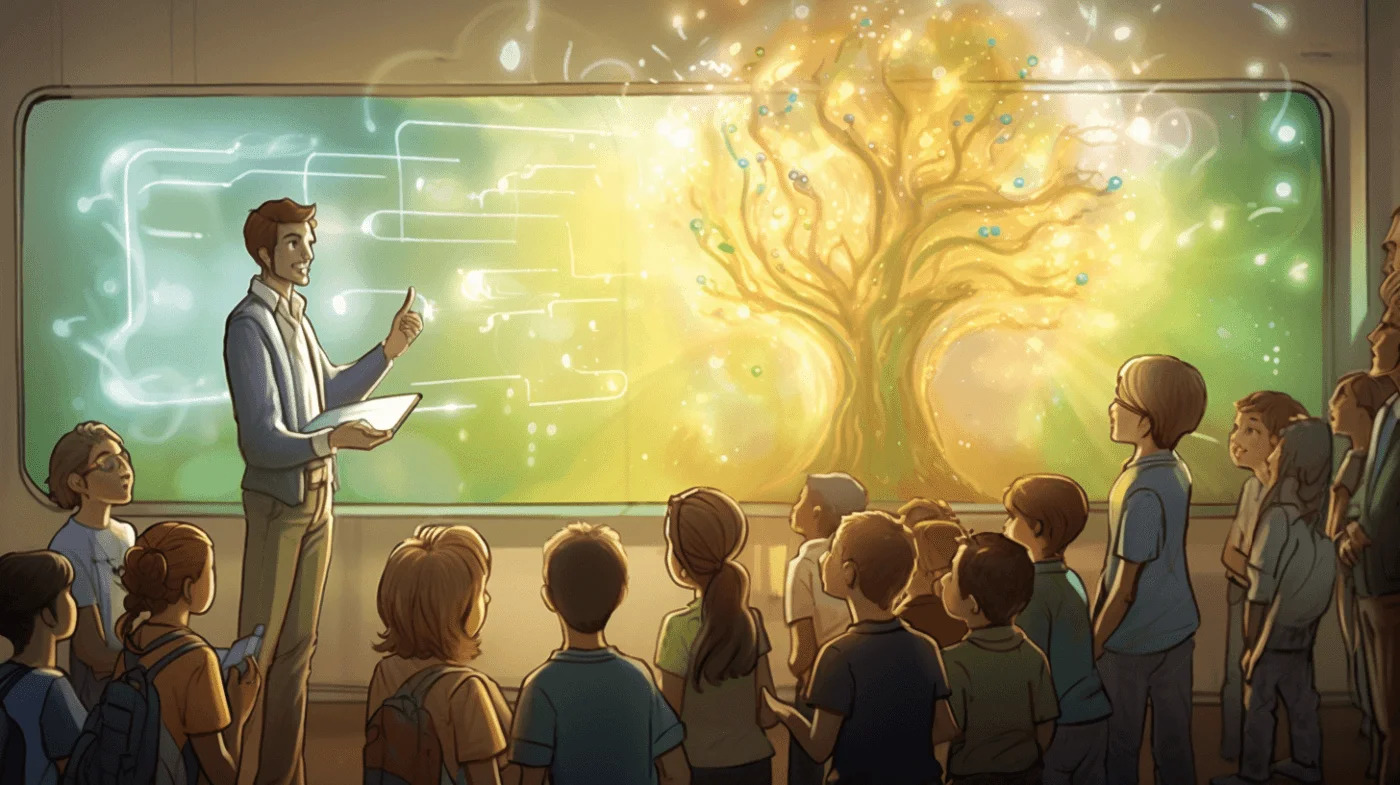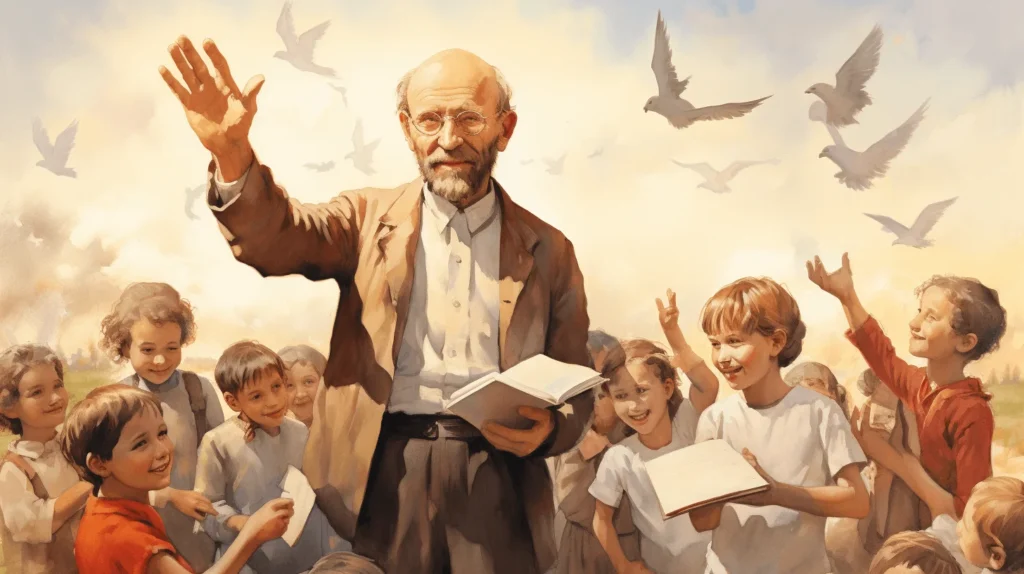Science
Something Massive Surrounds the Milky Way—and Controls the Movement of Galaxies
12 February 2026

Janusz Korczak (1878‒1942), a Polish doctor, writer and educator, once said: “Children are born with wings, teachers help to spread them.” What role should teachers play in the 21st century in relation to their students? What personality traits are the most important in this profession today, and what skills seem to be the most valuable? What values should those who introduce a young person to life and show them what is important focus on?
Observing the directions of the development of the modern world, it is not difficult to conclude that today’s education should not be limited only to the transfer of knowledge, and the traditional Prussian model (with a rigid division into subjects), which has been recognized so far, is no longer sufficient. Interdisciplinarity has become one of the determinants of scientific progress in the 21st century, and knowledge itself, without sensitivity to fundamental values, can prove harmful and even destructive in its effects on future generations. So what should be the function of contemporary educators in a dynamically changing culture? What should be special attention paid to, and what should be appreciated and supported? Albert Einstein’s words seem to be the first apt hint here: “It is the supreme art of the teacher to awaken joy in creative expression and knowledge.”
When we think back to the famous work of Umberto Eco, The Name of the Rose, we will find another hint which is worth returning to today. William of Baskerville together with his disciple Adso of Melk came to the Benedictine abbey to participate in theological debate. On the spot, however, they are given an additional, much more important task: They must unravel the mystery of the consecutive deaths of monks who lose their lives while working in the library, where they were copying Aristotle’s Poetics. In the pages of his novel, Umberto Eco presents the acquaintance of William and Adso as a master-student relation, thus making the reader aware that a true teacher is a master who does not point out ready answers, but only guides the student to discover the truth.
We recommend: A Pedagogy of Self-Reliance. Nordic Model
We observe the gentleness and patience of the teacher, who is also able – depending on the situation – to enforce obedience and to demonstrate consistency and determination himself. William’s attitude can be summed up in the words of A.B. Alcott (1799‒1888), an American writer and educator: “The true teacher defends his pupils against his own personal influence. He inspires self-trust. He guides their eyes from himself to the spirit that quickens him.”
The story described by Eco has its roots in antiquity, when the model of a teacher identified with a master, as well as an authority, a tutor and a guardian, gained strong recognition and popularity. The direction set by the Greeks seems to be extremely valuable and worth recalling in the 21st century. If we focus on the context of “giving the student a helping hand” in the concept of educare, it becomes clear what role teachers played at that time. Most of the credit in this field can be attributed to Socrates (469-399 BC), who, starting from the famous maxim “I know that I know nothing,” taught that the process of education is only about getting closer to knowledge and constantly searching for the truth in one’s own life. However, this path is never pursued alone. Socrates considered a conversation with another person the most appropriate method of acquiring knowledge because in his opinion only in relation to another one can discover the truth. He set the direction of education for the following centuries, inextricably linking (intellectual) knowledge with ethical values (truth, wisdom, honesty, justice). Emphasizing the importance of the relationship between teacher and student, he stressed the role of dialog, which is the basis of their bond, as well as sensitivity to timeless ethical values, from which purely intellectual knowledge should never be separated.
From more recent times, it is also worth recalling the words of the eminent German humanist J. W. Goethe (1749-1832), who gives contemporary teachers another tip, stating: “A teacher who can arouse a feeling for one single good action, for one single good poem, accomplishes more than he who fills our memory with rows and rows of natural objects, classified with name and form.” Sensitivity not only to noble deeds, but also to works of literature, shapes the ethical personality in man. Therefore, the role of the teacher is not only to pass on the “dry” knowledge classified according to top-down imposed scientific disciplines, but also (above all?) awakening sensitivity, empathy, tenderness toward beautiful deeds and important works.

In this context, it is enough to recall the 1989 film directed by Peter Weir entitled Dead Poets Society, where the role of the teacher is decisive. Prof. John Keating (an excellent role played by Robin Williams) represents with his attitude not only the status of a master but also a guide and authority for his students. He is the type of controversial (by the standards of classical education of the time) and at the same time, charismatic guardian of young literary talents who helps his pupils discover their independence of thinking and creative individualism. We are reminded of the words of S. Kierkegaard (1813-1855), who once wrote that a teacher’s personality is often of greater importance than their knowledge. Thanks to their character traits they inspire passion and accompany their students in a supportive and motivating way instead of controlling and punishing them for any deviation from rigid principles and rules.
As a sign of appreciation and respect from their charges, Keating gains the title of “the captain.” This term does not seem accidental here. The captain is the one who steers the ship and is responsible for the entire crew. Prof. Keating also plays this kind of role: He takes not only an intellectual but above all existential journey on a ship whose passengers are his students. Observing his relationship with young people, one can get the impression that there are no boring and difficult subjects. There are only not very creative educators. And the youth respect, listen to and follow such guides who ARE with them, accompany them for good and for bad, who can not only speak, but even better: listen; who share with them both their joys and their sorrows. One would like to say: this is the kind of teacher we exactly need!
The examples of Socrates and John Keating give us food for thought. Both pay a high price for their unconventional attitude toward young people. Socrates was deemed, in the face of Athenian democracy, as the one who destroys the youth by leading them astray. Keating is unfairly and unjustly accused, then judged and fired as a result. This shows that, despite the passage of time, humanity still has problems with opening up to new methods of education and a courageous search for truth, even if it involves abandoning traditional, fossilized methods and structures. However, there is the other side of the coin, the bright one, which inspires great hope and satiates with optimism: The students of both Socrates and Keating remain with them until the end. Socrates, after drinking poison hemlock, died surrounded by his most faithful disciples, and the most outstanding of them, Plato, who would later develop the views of his master, would also create the most complete ‒ as for ancient times ‒ model of education.
We recommend: North American Educational Approaches. Will they come to Europe?
Weir’s film ends with an extremely moving ‒ but also reaching out to human thought ‒ scene, in which the students of Prof. Keating, in defiance of their master’s dismissal, break the rules of school etiquette, and stand one by one on their benches. They refuse to go back to the old, traditional and standard teaching methods represented by a professor who is supposed to replace him. They already know that it is possible to live differently and that educating oneself is an amazing, developing journey through life, not just through the next halls of the university. Such an attitude of the pupils can and should give strength and hope that the future of the next generations lies in the hands of creative and responsible teachers. Perhaps there is still a long way to go in promoting openness, non-standard methods and bold solutions, but as H. B. Adams (1838‒1918), an American historian and writer, said: “A teacher affects eternity; he can never tell where his influence stops.”
Translation: Marcin Brański
Science
12 February 2026



Zmień tryb na ciemny